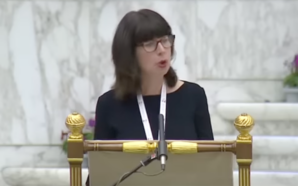16 May is International Day of Light
At first sight, an international day of light seems pretty soft. A nice thought, but it doesn’t seem to address any of our pressing concerns: the environment, world poverty, equality, gender equality, violence, and so on.
But if we imagine a world without light or with only blinding light, we can see how important light is to our lives. Without it, plants would not grow, people could find no food, and society would only with great difficulty grow beyond family groups living with the most basic form of shelter.
Without light at night, too, we would have to spend a great deal of time and energy ensuring that we were safe from threats to our safety and property, we would not be able to read or study. We would find it hard to eat out, to go to concerts or films. We would be confined in our homes.
Of course many people are forced by poverty to live in such a world. For them the arrival of gas or electric lighting is a great gift that improves their life in many ways. The Year of light reminds us that a world in which some people can waste light while others are deprived of it is an unjust world.
If we lived in a world in which we could find no darkness but only bright light, however, our lives would also be miserable. Such a world belongs to torturers who confine prisoners in a world of blinding light in order to break their resistance. The victims find it impossible to sleep, become disoriented and lose their sanity. In cities, too, light pollution is a threat to human well-being no less than its deprivation.
Light and the alternation of day and night are so important for human living that in most religions, including Christianity images of light and darkness are central when speaking of the deepest realities of human life. In his prophecies on which Christian liturgy draws so heavily at Christmas and Easter, Isaiah returns often to the theme of light. The return of the Jewish people from exile is compared to a people living in darkness who have seen a great light. The joy and freedom and wonder given by faith in Jesus is caught in the story of the man blind from birth whose sight is restored so that he sees ‘men like trees walking’. In John’s Gospel, Jesus is the light who shines in darkness and brings light to humanity. After describing Judas leaving the supper room to betray Jesus, John adds, ‘And it was night’. To live in the darkness is a desperate and destructive kind of life.
The year of light invites us to think of our lives and our world. It urges us to ensure that all people can live in the safety that light provides. At Jesuit Social Services many of the vulnerable people we serve are shrouded in darkness. The demeaning conditions of Newstart are hidden from public view. Their sparks of hope for a better life are constantly extinguished by the contempt of punitive media coverage. They invite us to ask what it means to live in the light, what kind of a world is really light bearing, and how we can help shape such a world.
Fr Andrew Hamilton SJ writes for Jesuit Communications and Jesuit Social Services.








